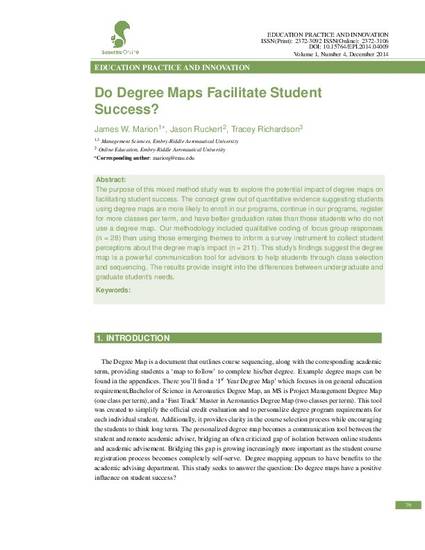
The purpose of this mixed method study was to explore the potential impact of degree maps on facilitating student success. The concept grew out of quantitative evidence suggesting students using degree maps are more likely to enroll in our programs, continue in our programs, register for more classes per term, and have better graduation rates than those students who do not use a degree map. Our methodology included qualitative coding of focus group responses (n = 28) then using those emerging themes to inform a survey instrument to collect student perceptions about the degree map’s impact (n = 211). This study’s findings suggest the degree map is a powerful communication tool for advisors to help students through class selection and sequencing. The results provide insight into the differences between undergraduate and graduate student’s needs.
Available at: http://works.bepress.com/tracey_m_richardson/3/
